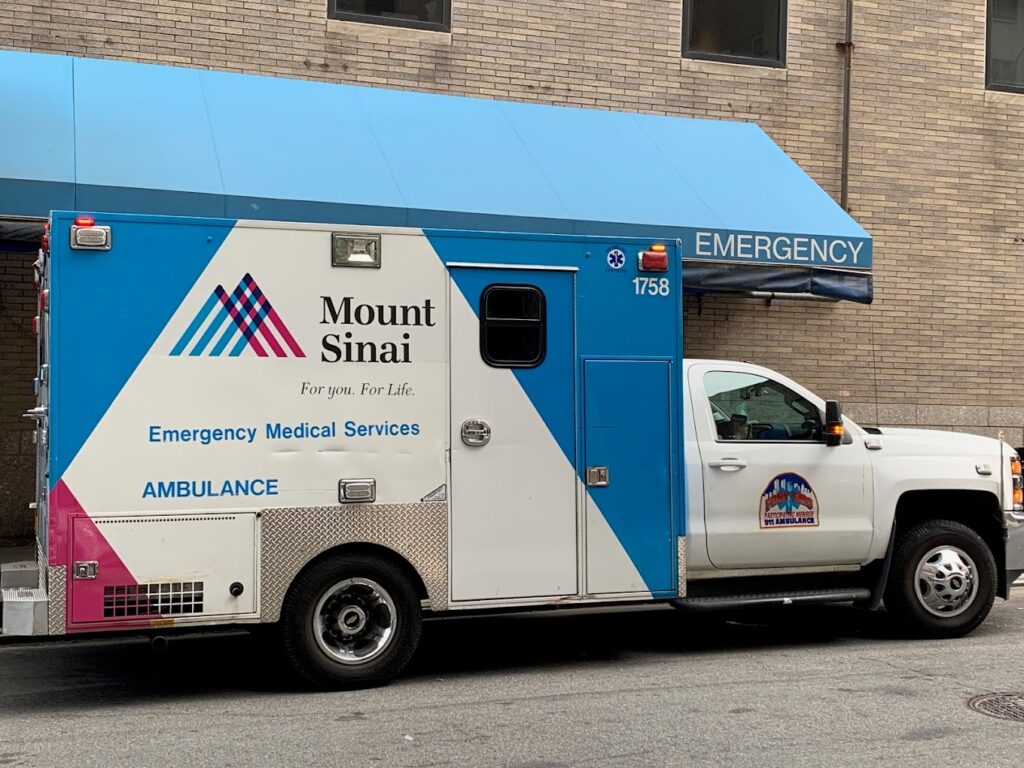Hospitals that pay for nursing school
Are there hospitals that pay for nursing school for individuals wishing to get into nursing in the US? The answer is yes. Some hospitals across the US are willing to pay for Willing individuals to study nursing. It is no longer news that the United States is facing a persistent nursing shortage, with the demand for skilled nurses far outweighing the supply. This is an incredible opportunity for aspiring nurses to contribute to a critical field.
As noble as the desire to become a nurse is, the financial burden of nursing education holds many back from pursuing this rewarding career. Thankfully, some hospitals are stepping up to the plate by offering financial support for nursing school, making the dream of becoming a nurse more accessible.
This blog explores how hospitals across the US are helping aspiring nurses by funding their education. If you’re considering a career in nursing, this guide will show you how to find hospitals that offer sponsorships, the benefits they provide, and how to take advantage of these life-changing opportunities.
The Current State of Nursing Education in the US

The Challenges of Nursing Education
Nursing education in the US can be both expensive and highly competitive. With tuition costs for a four-year Bachelor of Science in Nursing (BSN) averaging $40,000 – and rising in many states – the affordability of nursing school is out of reach for many students. For career changers or adult learners, the financial strain can feel insurmountable, especially for those who need to balance their studies with work or family commitments.
Financial stress also affects career choices. Many aspiring nurses may opt for less demanding educational paths rather than pursuing nursing – not because they lack passion, but because they lack resources.
Why Support Is Needed
Hospitals that pay for or reimburse nursing school fees help alleviate these barriers, opening doors for individuals who might otherwise be discouraged from entering the profession. This, in my opinion, is more than just offering financial aid—it’s about fostering a robust and sustainable pipeline of skilled nursing talent.
The Benefits of Hospitals Paying for Nursing School
Hospital-sponsored nursing education programs provide a multitude of advantages, both for the individual, the institution, and the country at large.
1. Attracting and Retaining Top Talent
By offering education sponsorships, hospitals can recruit aspiring nurses while building long-term loyalty. Candidates are more likely to stay with the sponsoring hospital post-graduation, reducing turnover and ensuring consistent staffing.
2. Reducing Financial Barriers
Aspiring nurses from all walks of life can enter the field without worrying about tuition costs. For example, adult learners, parents, and career changers can benefit greatly from the reduced financial strain.
3. Increasing Diversity
These programs create opportunities for non-traditional students, further increasing diversity in the nursing workforce. A diverse team of nurses ensures that patient care is culturally competent and inclusive.
By partnering with nurses through these programs, hospitals are making a valuable investment—not just in individuals but in the future of healthcare itself.
How Hospital Sponsorships Work
Hospitals offer nursing school funding through several models, but the two most common are tuition reimbursement and direct sponsorship programs.
Tuition Reimbursement Programs
With tuition reimbursement, hospitals reimburse all or part of a nurse’s tuition costs after they’ve completed their education. This structure requires nurses to work for the hospital for a set number of years, creating a beneficial partnership for both employees and employers.
Sponsorship Programs
Sponsorships differ slightly—they allow students to receive funding upfront, often covering tuition, uniforms, textbooks, and other costs associated with nursing education. Many programs even provide stipends for living expenses while students complete their training.
Notable Hospitals that pay for nursing school
Here are some notable hospitals across five states that sponsor or provide financial assistance for nursing school:
1. Cedars-Sinai Medical Center (Los Angeles)

On the list of Hospitals that pay for nursing school is the Cedars-Sinai Medical Center in Los Angeles. This hospital offers one of the most comprehensive hospital-sponsored nursing education programs in the United States. Their approach to nursing education support reflects a deep investment in developing healthcare talent from within.
The core of Cedars-Sinai’s nursing education support comes through its Nursing Education Reimbursement Program. This program covers up to 100% of tuition costs for eligible employees pursuing nursing degrees, from associate to doctoral levels. What makes their program particularly notable is that they allow employees to work part-time while studying, maintaining their benefits eligibility – a feature not all hospitals offer.
To participate in Cedars-Sinai’s program, employees typically need to:
- Work at the hospital for at least six months before applying
- Maintain satisfactory job performance
- Commit to working at Cedars-Sinai for a specified period after completing their education (usually 2-3 years)
- Maintain a minimum GPA (typically 3.0)
The financial support at Cedars-Sinai extends beyond just tuition. They provide additional benefits that many people don’t initially consider, such as:
- Coverage for required textbooks and educational materials
- Flexible scheduling to accommodate class schedules
- Academic counseling and mentorship from experienced nurses
- Access to on-site clinical training opportunities
One unique aspect of Cedars-Sinai’s program is their partnership with several local nursing schools, including UCLA and Mount Saint Mary’s University. These partnerships often provide preferred admission consideration for Cedars-Sinai employees and tailored curriculum tracks that align with the hospital’s practices and technologies.
Beyond direct financial support, Cedars-Sinai offers a comprehensive career development pathway. They recognize that becoming a nurse isn’t just about completing the degree – it’s about developing into a healthcare professional. They provide:
- Clinical rotation opportunities within their facility
- Professional development workshops
- NCLEX-RN exam preparation support
- Transition programs for new graduates
For those interested in pursuing specialized nursing fields, Cedars-Sinai also offers additional support for certifications and advanced training in areas such as:
- Critical Care Nursing
- Emergency Department Nursing
- Labor and Delivery
- Operating Room Nursing
- Oncology Nursing
The return on investment for both the hospital and the student is significant. Cedars-Sinai benefits from having nurses who are trained in their specific protocols and culture, while students receive a debt-free education and guaranteed employment in one of the nation’s top medical centers.
Would you like me to explain how this program compares to other major hospitals’ nursing education support programs, or would you prefer more specific details about certain aspects of Cedars-Sinai’s program?
2. UCLA Health (Los Angeles)
UCLA Health’s nursing education support program operates through their Healthcare Education and Career Advancement initiative. Their program demonstrates a strong commitment to developing nursing talent while leveraging their connection to UCLA’s School of Nursing. The program offers comprehensive financial support for employees pursuing nursing degrees at various levels.
The foundation of UCLA Health’s nursing education support comes through their Tuition Reimbursement Program. They provide substantial financial assistance, covering up to 90% of tuition costs for eligible employees pursuing nursing education. Their program is particularly noteworthy because it integrates directly with UCLA’s School of Nursing, creating a seamless educational pathway for employees.
To qualify for UCLA Health’s nursing education program, candidates must meet several requirements:
- Complete one year of employment at UCLA Health
- Maintain full-time employment status during the program
- Achieve and maintain a minimum 3.0 GPA
- Commit to continued employment at UCLA Health post-graduation (typically 3-4 years)
- Pass a competitive selection process that includes interviews and recommendations
UCLA Health’s financial support package is comprehensive and includes several components that make it particularly attractive. They provide coverage for essential educational expenses such as required textbooks, laboratory fees, and clinical supplies. The program also includes specialized support elements like licensing exam preparation materials and professional development resources.
A distinguishing feature of UCLA Health’s program is their integration with the UCLA School of Nursing. This partnership creates unique advantages for participants, including:
- Priority consideration for admission to nursing programs
- Access to UCLA’s world-class nursing faculty
- Opportunity to complete clinical rotations within the UCLA Health system
- Exposure to cutting-edge research and medical technologies
- Direct mentorship from experienced UCLA nurses
UCLA Health has developed a structured career advancement pathway that supports nurses throughout their educational journey. They recognize the importance of practical experience alongside academic learning and provide:
- Paid clinical practicum experiences
- Structured mentorship programs
- Research opportunities with UCLA nursing faculty
- Leadership development workshops
- Networking events with nursing professionals
For nurses interested in specialized areas, UCLA Health offers additional support for advanced training in various specialties:
- Pediatric Nursing
- Psychiatric-Mental Health Nursing
- Acute Care Nursing
- Family Nurse Practitioner
- Nurse Administration and Leadership
The program’s success is evident in its outcomes. UCLA Health reports high retention rates among program graduates, with many advancing into leadership positions within the organization. The integration with UCLA’s academic programs ensures that participants receive education that aligns with the latest advances in nursing practice and research.
UCLA Health’s investment in nursing education extends beyond individual support to include broader initiatives that benefit the entire nursing workforce:
- Regular continuing education programs
- Innovation in nursing practice workshops
- Research collaboration opportunities
- Quality improvement project participation
- International nursing exchange programs
3. Sharp HealthCare (San Diego)

You can not mention Hospitals that pay for nursing school without including Sharp Healthcare. As San Diego’s largest healthcare system, Sharp HealthCare operates a comprehensive nursing education support initiative through their Professional Development Program. Their approach combines financial assistance with career development opportunities, creating a robust pathway for aspiring nurses within their network of seven hospitals and multiple medical facilities.
The cornerstone of Sharp’s nursing education support is their Education Assistance Program. This program demonstrates exceptional commitment by offering up to 100% tuition reimbursement for eligible employees pursuing nursing degrees. What makes Sharp’s program particularly innovative is their “earn while you learn” model, which allows participants to maintain employment while completing their education.
To qualify for Sharp HealthCare’s nursing education program, candidates must meet several carefully structured requirements:
- Complete a minimum of 90 days of employment at Sharp HealthCare
- Maintain regular part-time status (minimum 16 hours per week) or full-time employment
- Achieve and maintain a minimum 2.5 GPA (though higher GPAs receive preferential consideration)
- Commit to continued employment at Sharp for a specified period post-graduation (typically 2 years)
- Participate in regular performance evaluations and academic progress reviews
Sharp’s financial support extends beyond basic tuition coverage to create a comprehensive educational package. Their program includes coverage for essential educational expenses such as required textbooks, laboratory fees, and necessary clinical supplies. They’ve also implemented a unique feature: a flexible spending account specifically for education-related expenses not covered by traditional reimbursement.
A distinguishing characteristic of Sharp’s program is their strong partnership with local nursing schools, including San Diego State University and Point Loma Nazarene University. These partnerships provide several unique advantages:
- Priority admission consideration for Sharp employees
- Customized class schedules that accommodate work commitments
- On-site clinical rotations at Sharp facilities
- Direct mentorship opportunities with experienced Sharp nurses
- Access to Sharp’s simulation laboratories and training facilities
Sharp HealthCare has developed a comprehensive career advancement framework that supports nurses throughout their educational journey. They recognize that successful nursing education requires more than just financial support and provide:
- Dedicated academic advisors and career counselors
- Structured clinical preceptorship programs
- Professional development workshops
- Leadership training opportunities
- Skills enhancement laboratories
For nurses interested in specialized areas, Sharp offers enhanced support for advanced training in various high-demand specialties:
- Emergency and Trauma Nursing
- Cardiovascular Nursing
- Maternal-Child Health
- Behavioral Health Nursing
- Perioperative Services
The success of Sharp’s program is reflected in their impressive retention rates and career advancement statistics. Many program graduates have progressed to leadership positions within the Sharp system, while others have become clinical educators and mentors for new generations of nurses.
Sharp’s investment in nursing education also includes innovative features that set it apart from other programs:
- A dedicated Education Center with state-of-the-art simulation technology
- Virtual learning platforms for theoretical coursework
- Interprofessional education opportunities
- Research collaboration possibilities
- Quality improvement project participation
The program particularly emphasizes practical experience alongside academic learning. Sharp has developed a unique clinical immersion model that allows nursing students to rotate through various specialties within their system, providing exposure to different nursing roles and helping them identify their preferred specialty area.
4. Houston Methodist Hospital (Houston)

Houston Methodist’s nursing education initiative operates through their Healthcare Education Advancement Program, providing substantial financial support for employees pursuing nursing degrees. Their program covers up to 100% of tuition costs for eligible employees, with a notably generous annual cap of $5,250 for undergraduate studies and $7,500 for graduate programs.
To qualify for Houston Methodist’s nursing education support, candidates must meet these key requirements:
- Complete six months of employment at Houston Methodist
- Maintain full-time status (32 hours per week minimum)
- Achieve a minimum 3.0 GPA
- Commit to working at Houston Methodist for two years post-graduation
The program’s financial package includes comprehensive coverage for educational essentials, including textbooks, required technology, and clinical supplies. Houston Methodist has established strategic partnerships with several Texas nursing schools, including Texas Woman’s University and University of Texas Health Science Center, creating streamlined pathways for their employees.
Their career development framework provides structured support through:
- Individual career counseling
- Clinical mentorship programs
- Skills development workshops
- Leadership training opportunities
- Research participation options
For specialized training, Houston Methodist offers enhanced support in high-demand areas:
- Critical Care Nursing
- Emergency Department Nursing
- Cardiovascular Nursing
- Oncology Nursing
- Surgical Services
The program’s is a huge success, as you can see from its high retention rates, with many graduates advancing to leadership positions within the Houston Methodist system. Their innovative “Earn While You Learn” model allows employees to maintain their income while pursuing their nursing education, making it particularly attractive for career changers and working adults
5. Texas Health Resources (Various Cities)
Texas Health Resources operates their nursing education support through the Educational Assistance Program, demonstrating their commitment to developing nursing talent across multiple locations. Their program stands out for its flexibility, allowing employees to pursue nursing education at multiple partner institutions while maintaining employment within the THR system.
The foundation of THR’s nursing support is their tuition reimbursement program, which offers up to 100% coverage of educational expenses for eligible employees. What makes their program particularly attractive is that it applies across their entire hospital network, allowing participants to gain experience at different facilities while completing their education.
To participate in Texas Health Resources’ nursing education program, candidates must fulfill these essential requirements:
- Complete one year of employment at any THR facility
- Maintain part-time status (minimum 24 hours per week) or full-time employment
- Sustain a minimum 2.75 GPA throughout the program
- Sign a service commitment agreement (typically 2-3 years post-graduation)
- Participate in regular performance evaluations
THR’s financial support package extends beyond basic tuition to create a comprehensive educational experience. They provide coverage for textbooks, laboratory fees, and required clinical supplies. Their program also includes a unique feature: a professional development allowance that can be used for certification preparation, continuing education, or professional conference attendance.
A distinctive aspect of THR’s program is their multi-campus approach, which provides several advantages:
- Ability to transfer between facilities while maintaining program eligibility
- Exposure to different healthcare environments and patient populations
- Access to diverse clinical experiences across urban and suburban settings
- Networking opportunities throughout the DFW metroplex
- Experience with various healthcare delivery models
Their career development framework supports nurses through multiple educational pathways, offering:
- Structured mentorship programs at each facility
- Cross-facility training opportunities
- Leadership development initiatives
- Clinical ladder advancement programs
- Research participation opportunities
For nurses seeking specialization, THR offers enhanced support in several critical areas:
- Women and Infants Services
- Emergency and Trauma Care
- Cardiac Care
- Orthopedic Services
- Behavioral Health
6. Baylor Scott & White Health (Dallas)
Baylor Scott & White Health operates their nursing education initiative through their Professional Development and Career Advancement Program. Their approach combines substantial financial support with extensive clinical resources across their network of 52 hospitals and more than 800 patient care sites, creating one of the most comprehensive nursing education support systems in Texas.
The core of BSWH’s nursing education support comes through their Education Assistance Program, which provides significant financial coverage for employees pursuing nursing degrees. Their program offers up to 100% tuition reimbursement, with annual caps that rank among the highest in Texas healthcare systems. What makes their program particularly valuable is its integration with Baylor University Louise Herrington School of Nursing, creating a direct pathway for aspiring nurses.
To qualify for Baylor Scott & White’s nursing education program, candidates must meet several carefully designed requirements that ensure both student and institutional success. These include completing six months of continuous employment at BSWH, maintaining either full-time or part-time status (minimum 20 hours per week), achieving a minimum 3.0 GPA, and committing to continued employment at BSWH for a specified period post-graduation (typically 2-3 years).
The financial support package at BSWH extends beyond basic tuition coverage to create a holistic educational experience. Their comprehensive approach includes funding for required textbooks, laboratory fees, clinical supplies, and even NCLEX-RN examination preparation materials. They’ve also implemented an innovative stipend program to help offset living expenses during intensive clinical rotations.
A distinguishing feature of BSWH’s program is their extensive network of clinical training sites, providing several unique advantages:
- Rotation opportunities across multiple facilities and specialties
- Exposure to diverse patient populations and healthcare settings
- Access to state-of-the-art medical technologies
- Experience with various healthcare delivery models
- Direct mentorship from experienced BSWH nurses
Baylor Scott & White has developed a structured career advancement pathway that supports nurses throughout their educational journey. Their framework includes individualized career counseling, structured mentorship programs, leadership development workshops, and research opportunities. They particularly emphasize evidence-based practice and quality improvement initiatives, encouraging program participants to engage in research projects that advance nursing practice.
For nurses interested in specialized areas, BSWH offers enhanced support for advanced training in various high-demand specialties:
- Trauma and Emergency Care
- Cardiovascular Services
- Women’s and Children’s Health
- Oncology Services
- Transplant Services
7. NewYork-Presbyterian Hospital (New York City)
NewYork-Presbyterian’s nursing education initiative operates through their Professional Nursing Development Program, combining exceptional financial support with access to world-class academic resources. This program reflects NYP’s commitment to developing nursing excellence in one of the world’s most demanding healthcare environments.
The foundation of NYP’s nursing education support is their Tuition Assistance Program, which provides remarkable coverage for employees pursuing nursing degrees. Their program offers up to 100% tuition reimbursement, with particularly generous annual caps reflecting the higher education costs in the New York metropolitan area. What distinguishes their program is its integration with Columbia University School of Nursing and Weill Cornell Nursing, offering employees direct pathways to prestigious nursing education.
To participate in NYP’s nursing education program, candidates must meet several carefully structured requirements:
- Complete one year of employment at NYP
- Maintain full-time status (36 hours per week) or part-time (minimum 24 hours)
- Achieve and maintain a minimum 3.2 GPA
- Commit to working at NYP for three years post-graduation
- Participate in regular academic and clinical performance reviews
The financial support package at NYP goes beyond standard tuition coverage. Their comprehensive approach includes funding for educational essentials such as textbooks, required technology, clinical supplies, and certification exam preparation. They’ve also developed an innovative living expense stipend program, acknowledging the high cost of living in New York City while pursuing education.
What truly sets NYP apart is their academic medical center environment, providing unique advantages:
- Access to cutting-edge medical research and technologies
- Exposure to rare and complex medical cases
- Training in specialized tertiary care services
- Collaboration with world-renowned healthcare professionals
- Participation in groundbreaking clinical trials
NYP has developed an extensive career advancement framework that supports nurses throughout their educational journey. Their program recognizes that nursing education in an academic medical center requires specialized support and provides:
- One-on-one academic counseling
- Clinical preceptorship programs
- Research participation opportunities
- Leadership development pathways
- International nursing exchange programs
For nurses pursuing specialized areas, NYP offers enhanced support for advanced training in:
- Transplant Nursing
- Pediatric Critical Care
- Neuroscience Nursing
- Cardiothoracic Surgery
- Advanced Oncology
NYP’s investment in nursing education also includes several innovative features:
Cross-campus rotation programs
Simulation centers across multiple campuses
Virtual reality training programs
International nursing conferences
Research grant opportunities.
8. Mount Sinai Health System (New York City)

Mount Sinai Health System (New York City)
Mount Sinai offers an extensive tuition reimbursement program for nursing education. Current employees can receive up to $5,000 per year for nursing school expenses. The system partners with several local nursing schools, including Phillips School of Nursing at Mount Sinai Beth Israel, where employees receive preferred admission consideration.
They’ve implemented a unique “work-study” model where staff can maintain part-time employment while attending nursing school, providing both income and practical experience. The hospital requires a two-year work commitment after program completion.
9. Northwell Health (Various Locations)
Northwell Health stands out with their comprehensive nursing education support system. They provide tuition assistance of up to $7,500 annually for nursing degrees. What makes their program particularly valuable is their “Grow Our Own” initiative, which identifies promising healthcare workers and supports their journey through nursing school.
Northwell also offers a distinctive loan forgiveness program where they pay up to $30,000 of nursing school debt over five years of employment. Their partnerships with local institutions like Hofstra University and Adelphi University create streamlined admission pathways for employees.
10. Baptist Health South Florida (Miami)
Baptist Health South Florida approaches nursing education support through their “Future Nurse Leaders” program. They offer full tuition coverage for selected candidates pursuing BSN degrees, which can amount to over $40,000 in total support.
Their program includes a structured mentorship component where experienced nurses guide students throughout their education. A unique aspect of their support system is the provision of flexible scheduling to accommodate clinical rotations and study time. They require a three-year work commitment post-graduation, but this comes with guaranteed placement within their hospital system.
ALSO READ:
11. Orlando Health (Orlando)

Orlando Health has developed a distinctive approach to nursing education support through their “Healthcare Scholars” program. Their financial commitment extends up to $6,000 per year for nursing education, with additional performance-based bonuses available for students maintaining high academic achievement. What sets Orlando Health apart is their integration with the University of Central Florida’s College of Nursing, creating a seamless educational pathway for their employees.
The program structure at Orlando Health incorporates several innovative elements. They’ve established a dedicated education department that provides personalized academic counseling and career planning for each participant. This support begins even before enrollment, helping prospective nursing students evaluate their readiness and prepare for the academic challenges ahead. Their system includes a preparatory phase where candidates can take prerequisite courses while still working in support roles at the hospital.
A particularly noteworthy aspect of Orlando Health’s program is their “Shadow-to-Success” initiative. This component allows program participants to rotate through different nursing specialties during their education, providing exposure to various career paths within nursing. This exposure helps students make informed decisions about their future specialization while building valuable professional networks within the hospital system.
The financial structure of Orlando Health’s support system deserves special attention. Beyond the base tuition assistance, they offer additional financial incentives tied to academic performance and commitment to specific high-need specialties. Students who commit to working in critical care areas or other specialized units can receive enhanced financial support, sometimes reaching up to $10,000 annually. This strategic approach helps the hospital address specific staffing needs while providing additional opportunities for motivated students.
Integration with Clinical Practice: Orlando Health has created an innovative clinical education model where nursing students in their program receive priority placement for clinical rotations within their facilities. This integration provides several advantages:
- Students gain familiarity with hospital protocols and systems before graduation
- They develop professional relationships with potential future colleagues
- The hospital can evaluate student performance in real-world settings
- Clinical experiences can be tailored to align with the hospital’s specific needs and practices
Post-Graduation Support: The hospital’s commitment extends beyond graduation. New graduates from their program receive enhanced orientation and transition support, including:
- A structured residency program specifically designed for new nurses
- Mentorship pairings with experienced nurses in their chosen specialty
- Additional professional development opportunities
- Priority consideration for advancement into leadership roles
When compared to the previously discussed hospitals, Orlando Health’s program shows some distinctive features while maintaining core elements of successful nursing education support. Their emphasis on early exposure to various specialties and the integration of performance-based incentives creates a comprehensive approach to nursing education that addresses both immediate staffing needs and long-term career development.
The success of Orlando Health’s program can be measured through several metrics. Their retention rates for program graduates exceed 85% after three years, significantly higher than the industry average. Additionally, nurses who complete their program show higher rates of advancement into specialty roles and leadership positions within the system.
For prospective students interested in Orlando Health’s program, the application process begins with current employment in the system. Strong candidates typically demonstrate:
Willingness to commit to the organization long-term
A clear commitment to healthcare through their current role
Academic readiness for nursing education
Understanding of the hospital’s values and culture
12. Tampa General Hospital (Tampa)

Tampa General Hospital has established a forward-thinking nursing education support program called “TGH Nursing Excellence Pathway.” Their financial commitment includes up to $8,000 annually in tuition reimbursement for nursing education, structured as an upfront payment rather than reimbursement, which particularly helps students manage their educational expenses more effectively. This approach eliminates the common barrier of students needing to pay costs out of pocket before receiving reimbursement.
The hospital has developed strong partnerships with local nursing education institutions, most notably the University of South Florida College of Nursing. This partnership creates a unique “concurrent employment-education” model where students can seamlessly integrate their work responsibilities with their academic requirements. The program structure allows participants to maintain steady income while pursuing their nursing degree, addressing one of the primary challenges faced by aspiring nurses.
Tampa General’s program incorporates several innovative educational support mechanisms. They’ve implemented a “Skills Enhancement Lab” specifically for program participants, providing additional hands-on training beyond standard nursing school requirements. This supplementary practical experience helps students develop stronger clinical skills and confidence before entering direct patient care roles. The lab operates during various shifts, accommodating different student schedules and learning preferences.
Financial Structure and Benefits Tampa General has created a multi-tiered financial support system that extends beyond basic tuition assistance. Their comprehensive package includes:
- Direct textbook and educational supplies coverage up to $1,000 per semester
- Certification exam fee coverage for specialty areas
- Performance-based stipends for maintaining high academic standards
- Additional financial incentives for committing to high-need departments
The hospital has also implemented a unique “Early Commitment Bonus” where students who agree to work in specific units after graduation receive additional financial support during their education. This strategic approach helps the hospital secure talent for critical areas while providing students with clear career pathways.
Clinical Integration and Professional Development Tampa General’s program stands out for its thorough integration of clinical experience with academic learning. Students benefit from:
- Structured clinical rotations that align with academic coursework
- Exposure to advanced medical technologies and specialized units
- Regular mentoring sessions with experienced nurse educators
- Opportunities to participate in research projects and quality improvement initiatives
The hospital has developed a sophisticated tracking system that monitors both academic progress and clinical skill development, allowing for early intervention if students need additional support. This proactive approach helps maintain high completion rates and ensures students are well-prepared for their nursing careers.
Post-Graduation Support and Career Advancement Upon completing their education, nurses who participated in the program receive comprehensive transition support, including:
- A specialized new graduate residency program
- Guaranteed placement in their chosen specialty area (subject to availability)
- Advanced certification support
- Leadership development opportunities
Tampa General’s commitment to continued professional growth is evident in their “Career Advancement Pipeline,” which provides clear pathways for nurses to progress into specialized roles or leadership positions. This structured advancement system helps retain talented nurses within the organization while supporting their professional aspirations.
Program Outcomes and Success Metrics The success of Tampa General’s nursing education support program is reflected in several key metrics:
- Graduate retention rates exceeding 90% at the three-year mark
- Higher than average NCLEX-RN pass rates among program participants
- Increased internal promotion rates for program graduates
- Improved patient satisfaction scores in units staffed by program graduates
Application Process and Selection Criteria The hospital maintains a competitive selection process for their nursing education support program. Successful candidates typically demonstrate:
Willingness to commit to post-graduation employment
Strong academic potential
Commitment to Tampa General’s mission and values
Previous healthcare experience (preferred but not required)
Clear understanding of nursing as a career choice
13.Johns Hopekins Hospital

One name that would always pop up when listing San Diego’s largest healthcare system, is the Famous Johns Hopkins Hospital.
Johns Hopkins Hospital’s nursing education initiative operates through their Professional Development and Career Advancement Program, reflecting their longstanding commitment to nursing excellence that dates back to 1889 when they established one of America’s first nursing schools. This historical foundation continues to influence their modern approach to nursing education support.
The centerpiece of Johns Hopkins’ nursing education support is their Tuition Assistance Program, which provides remarkable financial coverage for employees pursuing nursing degrees. The hospital offers to cover up to 100% of tuition costs for eligible employees, with annual caps that rank among the highest in the healthcare industry. This generous support demonstrates their philosophy that investing in nursing education strengthens both individual careers and the institution’s standard of care.
To participate in Johns Hopkins’ nursing education program, candidates must fulfill several carefully designed requirements that ensure both student success and institutional benefit:
- Complete a minimum of six months of continuous employment at Johns Hopkins
- Maintain either full-time or part-time status (minimum 20 hours per week)
- Sustain a minimum 3.0 GPA throughout the program
- Sign a service commitment agreement (typically 2-4 years post-graduation)
- Submit regular academic progress reports
The financial support package at Johns Hopkins extends well beyond basic tuition coverage. Their comprehensive approach includes funding for essential educational components such as required textbooks, laboratory fees, and clinical supplies.
They’ve also developed an innovative stipend program that helps offset living expenses during intensive study periods, recognizing that financial barriers often extend beyond direct educational costs.
What actually distinguishes Johns Hopkins is its integration with the Johns Hopkins School of Nursing, resulting in a cohesive educational ecosystem. This collaboration results in several distinct advantages:
- Direct pathways from entry-level positions to advanced nursing roles
- Access to world-renowned nursing researchers and clinicians
- Participation in groundbreaking nursing research projects
- Exposure to innovative nursing practices and technologies
- Opportunities to engage in global health initiatives
The hospital has structured their program to support various educational pathways, from initial nursing degrees through advanced specializations. Their career development framework includes:
- Individual career counseling and academic advisement
- Structured mentorship with experienced nurse leaders
- Skills workshops and simulation laboratory access
- Leadership development programs
- Research participation opportunities
Johns Hopkins places particular emphasis on supporting nurses who wish to specialize in high-need areas. They offer enhanced support for those pursuing advanced training in:
- Critical Care and Emergency Nursing
- Oncology Nursing
- Pediatric Nursing
- Surgical Nursing
- Transplant Nursing
A distinctive aspect of Johns Hopkins’ approach is its emphasis on evidence-based practice and research. They encourage program participants to engage in nursing research projects, quality improvement initiatives, and innovative care delivery models. This integration of education with practical application helps develop nurses who are not just clinically competent but also capable of advancing the field of nursing.
- Kaiser Permanente – Known for providing tuition reimbursement programs up to $10,000 for nurses pursuing advanced education.
- Cleveland Clinic – Offers a nurse tuition assistance program covering up to 80% of tuition costs.
- Mayo Clinic – Provides nursing education programs, scholarships, and discounts for its employees and aspiring nurses.
- AdventHealth – Covers 100% tuition for specific nursing programs in exchange for a work commitment.
These programs not only address financial obstacles but also create a pathway to skill development for aspiring healthcare professionals.
Qualifications and Requirements for Hospital Sponsorships
While hospital sponsorships are a fantastic opportunity, they often come with specific criteria.
Academic Performance
Many programs require students to maintain a minimum GPA to remain eligible for funding. Additionally, students may need to enroll in an accredited nursing program approved by the hospital.
Commitment to Work
Hospitals typically ask recipients to commit to working at their facility for a set duration post-graduation—usually between two and five years. This ensures the hospital sees a return on its investment while the nurse gains valuable experience in the industry.
Additional Criteria
- Application Deadlines: Be sure to apply early, as funding is often limited.
- Relevant Experience: Some programs may favor applicants with healthcare experience.
Understanding these requirements ensures you are well-prepared when applying for financial support.
How to Find Hospitals That Offer Sponsorships
Looking for hospitals that pay for nursing school? Here are practical tips to guide your search.
1. Research Local Hospitals
Start by exploring hospitals in your area. Visit their websites and look for “careers” or “education benefits” sections to see if tuition support or sponsorship programs are available.
2. Network with Healthcare Professionals
Reach out to nurses, recruiters, or mentors who may know which hospitals offer education funding. Networking at career fairs or alumni events can also uncover hidden opportunities.
3. Use Online Resources
Websites like NurseJournal.org or Indeed frequently list nursing sponsorship programs. Additionally, many nursing schools have partnerships with local hospitals and can provide a list of options.
4. Speak Directly with Recruiters
Connecting with hospital recruiters can give you direct insight into available programs. Don’t hesitate to ask about financial aid opportunities during interviews or informational sessions.
The more proactive you are, the quicker you’ll uncover hospitals willing to invest in your nursing career.
Conclusion: Build Your Future in Nursing with Confidence

The nursing profession is critical to healthcare, and hospitals across the US are recognizing the need to invest in the future of nursing by paying for education. These programs not only address the financial burden of nursing school but also create opportunities for aspiring nurses to enter a fulfilling and vital career.
If you’ve been dreaming of becoming a nurse but have been held back by the cost of education, now is the perfect time to explore hospital sponsorships. Take the first step toward your nursing career by researching programs in your area and connecting with recruiters who can guide you through the process.
Hospitals have a responsibility to lead the way in solving the nursing shortage, and supporting nursing education is a powerful step in the right direction. For aspiring nurses, these programs offer a chance to change their lives—one patient at a time.
Are you ready to join the next generation of nursing professionals? Start exploring sponsorship opportunities today and turn your nursing aspirations into reality.







